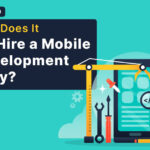In recent years, the aspect of dating has incorporated many changes as well as removed restrictions and stereotypes stereotypically attached to it. Increasingly, there needs to be a specific representation of online dating embracing one set of certain identities, desires, and ways of life. Naturally, this evolution is necessary not just because it brings new perspectives and understandings of what love and relationships are but also because it widens the user’s diversity.
Change From Old Dating Rules to Diverse Identities
Historically, dating has revolved around traditional norms, such as certain stereotypes that define who is worthy of love. How should the relationship work? What type of person is considered ‘acceptable’ in a romantic context? However, the rise of online dating platforms has shattered these outdated views, resulting in diverse identities and preferences.
Dating platforms now recognize that love comes in many forms. Whether it’s two men, two women, or any possible combination. Online platforms embrace the diversity of sexualities and gender identities. This change is especially important for the LGBTQ+ community, which has faced high societal challenges when it comes to expressing love. It provides a unique space for users to connect based on their unique identities. These apps have helped create an inclusive dating environment.
Niche Apps For Diverse Communities
The evolution of niche dating apps is a key development factor in the online dating era. These platforms are designed to cater to specific communities and allow users to connect with others who share similar cultural values, religions, or lifestyles.
Niche dating apps are also gaining traction among different age groups. The best dating apps for teens, like Yubo and SpotaFriend, keep safety and social interaction at the top. It allows young users to explore friendships and potential romantic relationships without the pressure often associated with traditional dating. For instance, apps like OurTime are for people who want love or companionship with an awareness of the specific needs of different age groups. These apps thus promote a sense of belonging among users.
Challenging Gender Roles
Online dating also breaks down stereotypes related to gender roles and expectations. Many traditional dating norms say that men should initiate contact and offer dates. At the same time, women are often expected to be passive. But it’s with the rise of apps like Bumble that women are making the first move. Users are, therefore, encouraged to challenge these stereotypes. And redefines dating in the modern world.
This empowerment allows individuals to take charge of their dating lives. It promotes a culture of equality and mutual respect by encouraging both men and women to participate in the dating process. These platforms promote a more balanced and respectful approach to relationships.
Creating Relationships Via Shared Passion
Furthermore, online dating has transformed from superficial relationships to trustworthy bonds backed by shared values and interests. Most dating apps now enable users to generate detailed profiles that emphasize life goals and hobbies. Focusing on personal interest promotes connections that go beyond physical attractiveness. Encourage users to explore compatibility on a deeper level.
The best dating apps for college students, like Coffee Meets Bagel and Hinge, meet the need for connection by facilitating interactions based on shared interests and backgrounds. These apps understand that students tend to live busy schedules and prioritise finding a partner who understands their unique lifestyle by promoting conversation about common interests. These platforms help users build authentic relationships, free from the constraints of traditional dating norms.
One of the more noticeable trends going on in dating culture involves the growing niche platforms designed to fulfill certain niches within communities or related interests. The LGBTQ+ app seems to be programmed around the idea of connection based on shared identities or values-something that has been realized in apps customized for a specific ethnic identification. While many are forced to step in line with the overwhelming standards of the mainstream, niche sites provide that refreshing chance to be seen, understood, and celebrated for who you are.
For instance, apps like Grindr and HER provide safe havens for LGBTQ+ people to find like-minded partners, while JSwipe and BlackPeopleMeet forge connections between culturally or ethnically background-specific people and facilitate meaningful relationships with them. These websites easily enable a visitor to find another person who not only shares his or her values but is going to understand and appreciate his or her unique experience-this can give an individual a place one belongs in a world that can so easily feel isolated at times.
Cultural and Ethnic Diversity Celebration
Online dating has also made it easy to meet individuals of other cultures and ethnics. It somehow reflects a mass shift in the broader social trend to become more inclusive and multicultural. One no longer restricts one’s choice of partner within the same cultural or ethnic circle. Be it a citizen from another country or someone with a different background, online dating sites have brought about a global village of love; nothing can limit love.
Online diversity also brings about more discussions on cultural sensitivity. Understanding customs and traditions, tackling stereotypes and biases, and demanding tolerance make dating apps encompass an approach that promotes a wide, open-minded, and respectful attitude toward differences. Many of the dating platforms launched in recent times boast features that allow people to share cultural values, such as language, traditions, or diet, offering people the possibility of getting involved and exploring differences instead of ignoring them or trying to surmount them.
Gender and Sexual Inclusion
The most interesting outcomes in online dating are recognition and incorporation of diverse gender identities and sexual orientations. While dating applications previously implied a binary gender classification-to be male or female-these applications now enable the user to select from an impressive list of gender options, including non-binary, genderqueer, and transgender identities. This shift, amongst other things, allows people to be themselves more authentically, allows for greater acceptance and understanding within the dating community.
Further, sexual orientation has become more fluid when considering online dating. Dating platforms now accept different orientations ranging from heterosexual and homosexual into asexual, bisexual, and pansexual. This flexibility has enabled the creation of a society where individuals can feel comfortable and become confident about their identities without fear of judgment or exclusion. Most platforms also have advanced filters for searching for potential partners based on specific preferences, which aid people in finding others who share similar views on relationships, intimacy, and love.
Final Thoughts
The online dating landscape is not merely a field driven by narrow definitions of romance. Instead, it has become an open space that celebrates diversity in all its forms. By breaking down barriers related to sexual orientation, gender identity, cultural background and age, online dating platforms create an inclusive environment where individuals can truly connect.
As we continue to embrace this diversity, it is important to recognise the role online dating plays in promoting understanding and acceptance among users from all walks of life. Through shared experiences, values, and interests, individuals are able to create connections that not only challenge social norms but also make life better. The journey towards a more inclusive and accepting world of online dating is underway. Rather, it is a journey based on meaningful relationships for everyone involved.
Also have a look at:
Blogs



